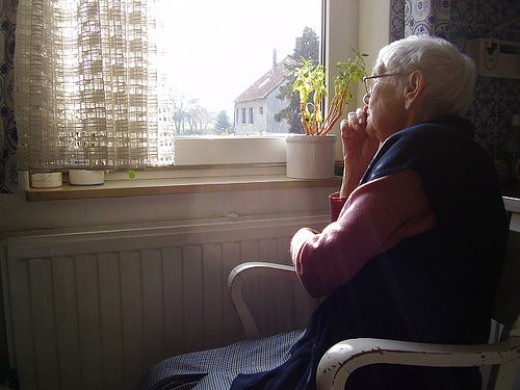Most seniors feel like there is no benefit to staying active or being motivated later in life. A lot of times you hear things like, “what’s the use” coming from your aging loved one. The fact is that a majority of seniors want to remain independent, but they also don’t consider how being inactive can contribute to many different types of health conditions. Below, we will explore how you can help keep your senior independent and engaged with life, even as they age.
Discussions With Their Doctor
When taking your aging loved one to the doctor, it’s important to bring up any types of changes that you have noticed over time. Have they been acting different since their last appointment after they were prescribed a new medication? New medications will commonly cause noticeable changes in your loved one. These changes may be attributed to side effects caused by the medication or the changes could perhaps be caused by not taking the medication correctly.
Often times depression can set in with various illnesses like stroke, dementia and heart disease. Having a conversation in the type of atmosphere that will assist motivation with your aging loved one can prove to be very beneficial. Be sure to include your loved one in the conversation to support their wishes. Encourage motivation with reinforcement on how important it is to maintain an active lifestyle for strong physical and mental health.
Helping to Battle Their Loneliness
A lot of times the cause of depression and loneliness stems from a senior losing a loved one like a spouse, close friend or another person whom they held an extremely close relationship with. After losing someone close, this can lead to them feeling very alone, isolated and not wanting to be around other people for various reasons. They may be overcome with grief or seeing people can bring back painful memories. It’s important as family members to establish a routine of calls and just letting them know when you will come by for a visit. This will help to give them something to look forward to and will help them to continue to engage with the people around them.
Setting Goals to Stay Engaged
Many times, a senior doesn’t understand the importance of staying engaged or setting goals for themselves. Having a discussion with your senior about completing simple tasks like getting the mail, or visiting with neighbors a few times a week can be extremely beneficial. It’s important to start with very simple tasks and have them complete them only a few times a week. Once they are starting to see and feel the benefits of getting out and about they will start to increase activity and become more social with the people around them. You can even create simple tasks like having them write out an old recipe that you have always loved followed by having them help you pick out the right ingredients, then cook the meal together. Not only does this help to create a great memory it also helps them to engage in the activities that used to be very common for them.
When it’s Time to Ask for Help
Getting help for a senior can be a challenging task in its own. Quite often a senior is not willing to admit that they need help because they are unwilling to accept that they have lost some of their independence. Often times a doctor will suggest the use of home care services to help your loved one. Home care services could include medication management, light housekeeping, or in-home respite care.
Often times when senior home care is suggested, they think that this home care aide is going to come into their home and tell them what to do like a babysitter. This is far from the reality of home care aide interaction. Having the assistance of a home care aide can actually help to increase their independence and help them to remain in their home even longer. With senior care, home care personnel actively seek ways to prevent falls in the home and can help ensure that you are taking your medications on time and the right way. This helps to decrease two major common causes of deaths for seniors.
Understanding what motivates and keeps you senior engaged can be a huge health benefit in the early stages of aging. This can help to extend their quality of life and help them to maintain their independence. Even something as simple as encouraging them to tell stories about their past is a great psychological resource for keeping them cognitively, emotionally and socially active. It also helps to increase their self-esteem and uplift their spirit.


















